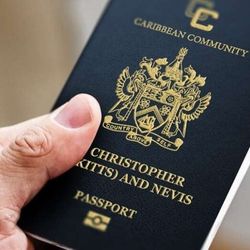I stood watching the luggage carousel spin with hopeless anticipation. I was on my first-ever entirely solo vacation and had planned every detail perfectly, including packing the precise items I’d need for my bucket list trip to the Galapagos. But I’d already been at the Quito airport for hours with no sign of my essentials in sight—and no sense of what was going on in a completely foreign setting.
There was only thing that was providing me with some calm. Although I had never thought to purchase travel insurance on my trips around the world, I had for the first time since the company I was traveling with, Intrepid Travel, required it—and boy was I grateful.
My suitcase didn’t end up arriving for another four days. But the $200 delayed luggage allowance had allowed me to pick up the essentials—including a pair of ridiculous puffy paint Galapagos shorts I never would have bought, but now wear as pajamas every night, reminding me that investing a little can go a long way for peace of mind.
Now, whenever I travel, I look at the details of the travel insurance—including the one on my credit card—but the complexities can get tricky. So to better understand what it all means, we turned to travel insurance experts to break it all down.
What is Travel Insurance?
With all the forms of insurance that we already have at home—medical, car, homeowner’s and property insurance, it may feel like a burden to tack on even more to the cost of a vacation by adding insurance as well. So what makes travel insurance different than the rest?
“Travel insurance is a specialized product that covers you when you are away from home,” Joe Cortez, senior writer for FlyerTalk, explains. “It can take two forms: if you purchased your trip on a travel credit card, you may already have coverage through that card.
The other is a third-party product, which often covers more. You don’t necessarily have to leave the country to qualify for travel insurance: as long as you travel a distance away from home (usually between 50 and 100 miles away, depending on the insurance), you may qualify.”
So how does this differ from other insurance, especially medical insurance, that you may already have? “Most medical insurance plans in the US only cover treatment that’s performed domestically, not abroad.
Travel insurance ensures that a vacationer won’t be stuck paying out of pocket for a major medical emergency should one arise,” Scott Keyes, founder & CEO of Scott’s Cheap Flights, says. Plus medical coverage is just one aspect of what travel insurance encompasses.
What Does It Cover?
Every travel insurance plan covers different specifics. “It’s important to read precisely what any specific plan covers,” Keyes emphasizes.
“Among the risks that travel insurance can cover: flight delays, flight cancellations by the airline, trip cancellation if you can no longer go for a specified reason, medical expenses, emergency evacuation, lost or delayed baggage, rental car coverage, identity theft, and life insurance.”
Travel cancellation can cover reimbursements if a reason arises that you can’t go on the trip at all. “If you, a close family member or a traveling companion gets hurt or sick before you leave (your doctor must see you in person and say you can’t travel), travel insurance may reimburse you the money you lose and that may include pre-existing medical conditions,” Steve Dasseos, founder of TripInsuranceStore.com, says.
And medical reasons aren’t the only ones protected by travel insurance. “Your travel supplier could unexpectedly cease operation, you are laid off, you’re required to work, terrorism at your destination, bad weather, hurricanes, natural disasters or unexpected jury duty,” Dasseos notes as other possibilities.
If an incident happens while on the trip, trip interruption or trip delay Insurance may cover it and if it’s a medical need that requires being transported back home, it can cover emergency medical transportation, he explains, adding that Medicare doesn’t cover medical expenses outside the country.
Also important is what the policy doesn’t include, like bad weather, government regulation changes, war, or trips to obtain medical treatments, Dasseos adds.
With all these terms floating around, it can get overwhelming fast. But Cortez says to look for these key things: trip cancellation, trip delay, trip interruption and baggage delay and loss.
“These four benefits will cover you in the event you are forced to cancel your trip for a covered reason, you get stuck by a common carrier (like an airline or cruise line) during your trip, you have to return home during your trip due to an emergency, or your bags get lost,” he explains.
RELATED: Low Cost Airline Connections
For the most part, not wanting to go anymore also isn’t a good enough reason to cancel. However, some plans do offer a “Cancel for Any Reason” clause—usually at a higher cost—which covers you in case you simply change your mind for any reason.
But for these, be sure to insure the total cost of the entire trip together, Dasseos advises, otherwise you may forfeit the entire coverage. Continue Reading

